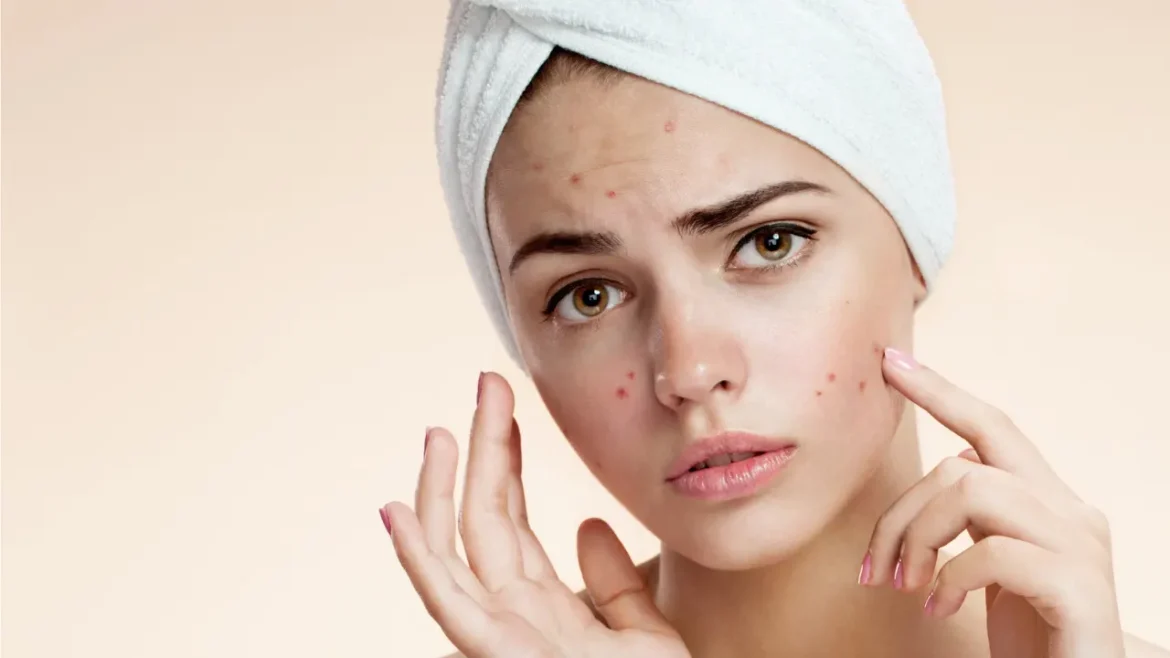Description
A skin condition known as acne is identified by the development of cysts, blackheads, whiteheads, and pimples. When bacteria, dead skin cells, and oil plug the hair follicles, that is when acne develops. The face, neck region, chest area, and back are among the body parts with the highest density and activity of sebaceous glands, which create oil. The formation of bacteria, specifically Propionibacterium acnes (P. acnes), is made possible by the buildup of oil and dead skin cells in hair follicles. Enzymes produced by P. acnes cause the oil to be broken down, which causes inflammation along with the development of pimples.
The most common kinds of acne lesions include:
Inflammatory Lesions: Inflammatory lesions develop when the follicle becomes inflamed as a result of an infection from bacteria or an immunological reaction. They might appear in the form of papules, which are tiny red lumps, pustules, nodules, which are huge and painful lesions, or just cysts, which are deep lesions filled with pus.
Comedones: Comedones, the non-inflammatory lesions, develop as a result of the hair follicles becoming clogged with sebum along with dead skin cells. They can be open (blackheads) or closed (whiteheads). They might appear as whiteheads, which are closed, or as blackheads, which are open.
You May Also Like:
HOO RAA CBD VS PARTNERED PROCESS CBD
SMILZ CBD GUMMIES VS PARTNERED PROCESS CBD GUMMIES
Acne: Description, Causes, And Treatment Protocol is an original (HealthXWire) article.
Possible Causes
Although its specific cause is not entirely understood, a wide range of factors can lead to the onset of acne. These factors are as follows:
Hormonal Changes: Acne can grow as a result of hormonal variations that might encourage the sebaceous glands to generate more oil, like those that take place during puberty, pregnancy, menstruation, and menopause.
Diet: Dairy products and foods with high glycemic indexes can typically make acne worse, according to some research, even if the connection between diet and acne has not been fully understood.
Excess Oil Production: Acne growth can be influenced by excessive oil production. Androgen hormones and corticosteroids are two medications that can encourage the sebaceous glands to generate excess oil.
Bacteria: Acne development is significantly influenced by P. acnes bacteria. They proliferate within the hair follicles, disintegrating oil and bringing on inflammation.
Stress: Stress can trigger hormones to be released which can create oil secretion and inflammation, which can result in acne.
Genetics: The fact that acne can pass down in families raises the possibility that genetics may be involved in its onset.
Exacerbating and Mitigating Factors
Acne can grow and worsen due to a number of aggravating and mitigating factors, which include:
Skin Care: The accumulation of oil, debris, and germs that can cause acne can be avoided by using gentle skin care techniques, such as gentle washing and moisturizing, and by also using mild skin care products that are non-comedogenic, without oils. It is critical to prevent pore blockage. But excessive washing and the use of abrasive or harsh products for skin care may cause irritation of the skin and make acne even more severe.
Sun Exposure: Since sunlight has the ability to prevent inflammation, sun exposure may temporarily decrease the severity of acne; however, over time, it may lead to damaged skin, raise the possibility of skin cancer, and bring about hyper-pigmentation.
Lifestyle Habits: Smoking, drinking alcohol, not exercising, eating poorly, and not getting enough sleep can all worsen acne by causing more oil production and inflammation.
Medications: By balancing hormones and lowering oil production, some drugs, including isotretinoin and oral contraceptives, can reduce the severity of acne. Nevertheless, other drugs can make acne worse by increasing oil production, including corticosteroids, lithium, and androgens.
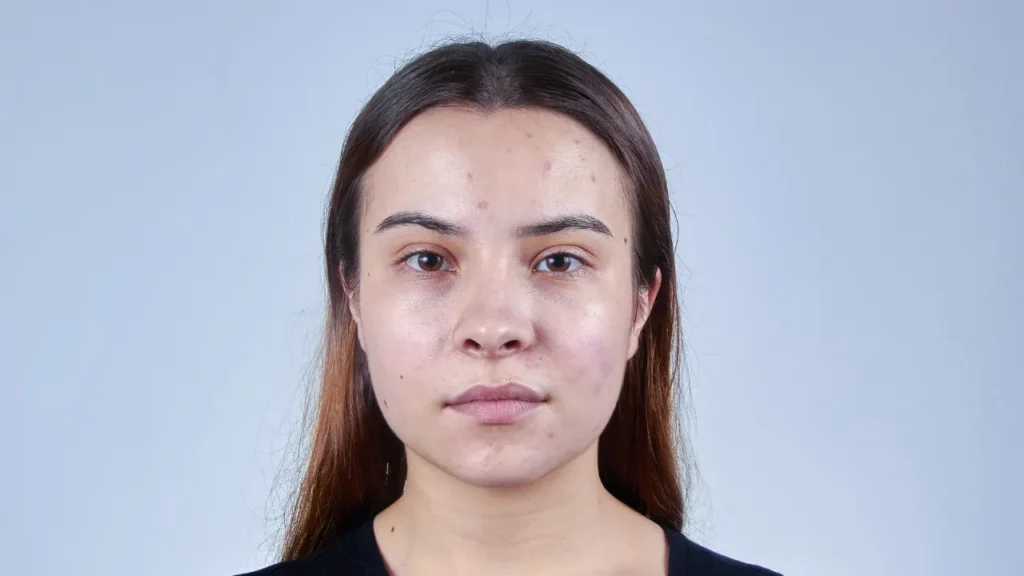
Standard Treatment Protocol
Depending on how severe the acne is, a standard treatment protocol should be followed. Although mild cases of acne can be managed through over-the-counter topical therapies, moderate to severe cases may necessitate the administration of prescription-strength medicines. The following are some of the standard acne treatment solutions:
Topical Treatments: Topical therapies that destroy bacteria, unclog pores, and mitigate inflammation include benzoyl peroxide, azelaic acid, and salicylic acid.
- Benzoyl Peroxide
In order to destroy P. acnes and relieve inflammation, benzoyl peroxide releases oxygen into the skin. It can be applied individually or in conjunction with other acne treatments and comes in a variety of forms, including creams, cleansers, and gels.
- Azelaic Acid
Azelaic acid is a natural acid with antibacterial and anti-inflammatory properties. In addition to enhancing skin tone and texture, it can slow P. acnes growth. Azelaic acid can be administered either alone or in conjunction with other acne treatments. It comes in gel and cream forms.
- Salicylic Acid
Salicylic acid is a beta-hydroxy acid that helps clear clogged pores while exfoliating the skin. It comes in a variety of forms including gels, cleansers, pads, and creams.
Hormonal Treatments: Oral contraceptives and spironolactone are two hormonal medications that are beneficial in the treatment of acne in women because they can balance hormones and lower sebum secretion. Estrogen and progesterone-containing oral contraceptives can help regulate hormone levels and lower the secretion which can lessen acne. Generally, they are administered for a number of months.
Oral Antibiotics: Doxycycline, minocycline, and tetracycline are examples of oral antibiotics that can destroy bacteria and relieve inflammation. They are normally administered for several months and are generally prescribed to treat mild to severe acne. However, it is importnat to remember that antibiotic resistance, nevertheless, can develop through repeated usage, in addition to other negative impacts.
Isotretinoin: Isotretinoin, often referred to as Accutane, is a strong oral medication that is effective for treating severe acne that remains unresponsive to other therapies. It helps lower inflammation, reduce oil glands, and minimizes sebum secretion. Nevertheless, it has serious side effects and needs close dermatologist supervision.
Corticosteroid Injections: The swelling of big acne lesions, like cysts and nodules, can be reduced by corticosteroid injections. These are often applied to cases of severe acne which induce extreme pain or permanent scars.
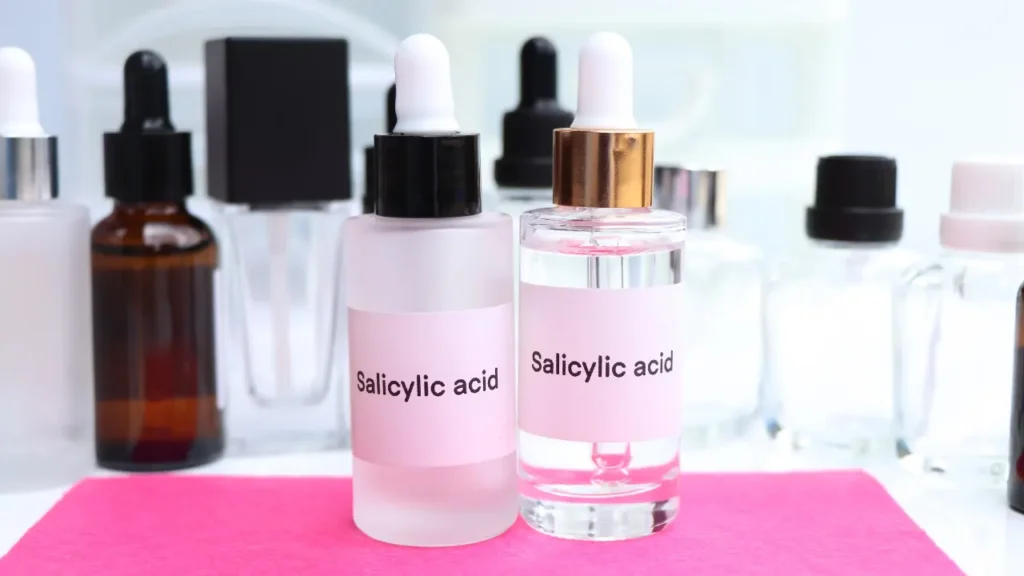
Treatment Options
Many additional treatment alternatives can be used as supplementary therapies or to help increase the effectiveness of regular treatment regimens. The following are a few acne treatment alternatives:
Nutritional Supplements: Zinc, omega-3 fatty acids, and probiotics are a few dietary supplements that can help minimize inflammation and enhance overall skin health. To prevent side effects or drug interactions, it is crucial to consult a healthcare professional before consuming dietary supplements.
- Zinc
Zinc is a crucial mineral that has been found to decrease swelling and prevent the development of the P. acnes bacterium. Both topical and oral applications of zinc are available.
- Omega- 3 Fatty Acids
The anti-inflammatory attributes of omega-3 fatty acids can greatly minimize acne. Flaxseed oil, fish oil, and chia seeds are some food products that make up omega-3 fatty acids.
- Probiotics
Probiotics are good bacteria that can regulate the gut microbiota, lower inflammation, and possibly even treat acne. Fermented food items including yogurt, sauerkraut, kimchi, and kefir contain probiotics.
Natural Remedies: Aloe vera, tea tree oil, turmeric, and green tea are a few natural therapies that contain antibacterial and anti-inflammatory attributes and can assist with acne. Natural therapies might, however, irritate the skin or trigger allergic reactions, therefore it is imperative to proceed with precaution when applying them.
- Tea Tree Oil
Due to its antibacterial properties, tea tree oil can eradicate P. acnes bacterium. when applying tea tree oil topically, it can lessen acne lesions.
- Aloe Vera
Aloe vera possesses anti-inflammatory and antibacterial properties that could lessen acne. Aloe vera gel applied topically may aid in soothing the skin and reducing inflammation.
- Green Tea
Catechins and polyphenols found in green tea possess anti-inflammatory and antioxidant properties. Acne may be decreased by topically using green tea or ingesting it in the form of a beverage.
- Turmeric
Curcumin is a substance that has antioxidant and anti-inflammatory attributes, and is a major component of turmeric. Turmeric can be topically applied or taken orally, and can decrease acne occurences and appearances.
Herbal Remedies: Guggul and berberine, are two herbal medicines that are useful in treating acne because they can help balance hormones and lessen inflammation. Prior to using herbal medicines, it is crucial to speak with a healthcare professional because they may combine with other prescriptions or have unintended effects.
Chemical Peels: Chemical peels that contain salicylic acid and glycolic acid can help with exfoliating the skin and clearing clogged pores, which helps reduce acne. For the best results, they need a few sessions and are frequently recommended for acne that is mild to moderate.
Light Therapy: Various kinds of light are used in light therapy, also referred to as phototherapy, to minimize inflammation and eradicate bacteria. It is secure and efficient for treating acne and might be taken individually or in conjunction with other therapies.
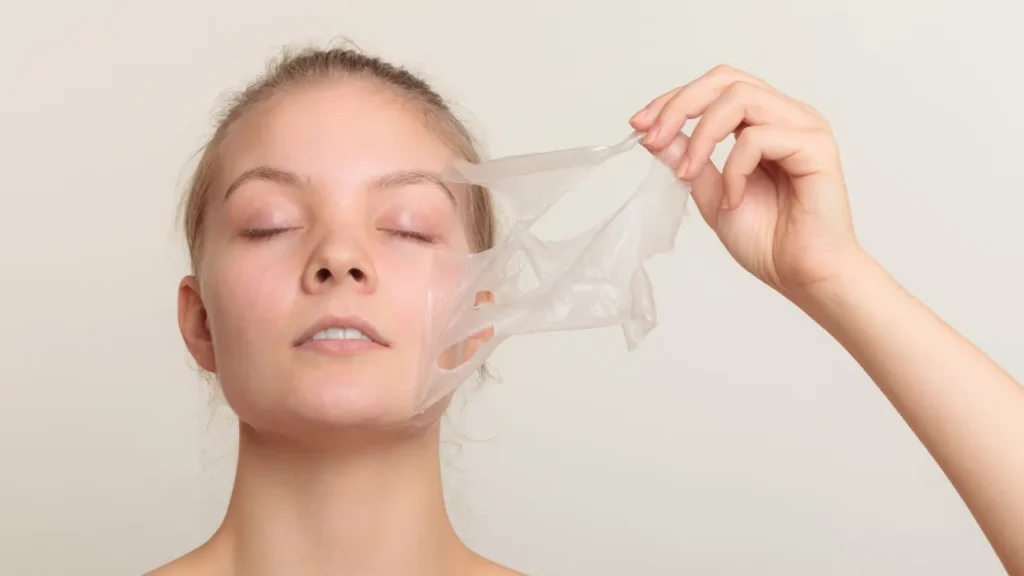
Conclusion
There are many ways to treat acne in hopes to minimize or eradicate it completely, and all the therapies and treatments provided in this article will provide you with as much insight on how to treat it as much as possible. However, every person is different, and everyone’s body reacts differently. Before trying any of these treatments, be sure to talk to your doctor or dermatologist to decide which treatment is best for you.
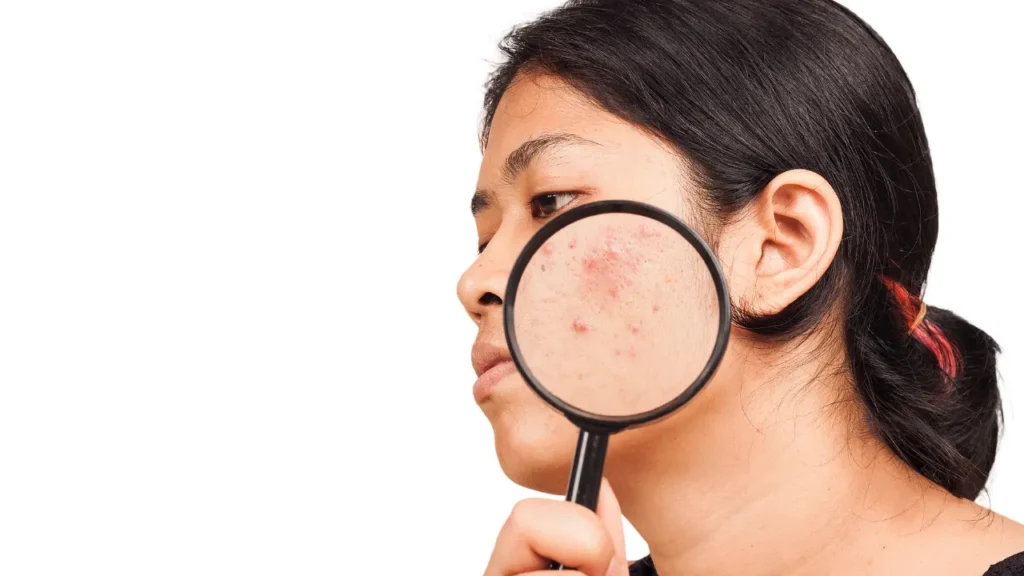
Additional resources for further reference
https://pubmed.ncbi.nlm.nih.gov/15152959/
https://my.clevelandclinic.org/health/diseases/12233-acne
https://www.aad.org/public/diseases/acne
Important Note: The information contained in this article is for general informational purposes only, and should not be construed as health or medical advice, nor is it intended to diagnose, prevent, treat, or cure any disease or health condition. Before embarking on any diet, fitness regimen, or program of nutritional supplementation, it is advisable to consult your healthcare professional in order to determine its safety and probable efficacy in terms of your individual state of health.
Regarding Nutritional Supplements Or Other Non-Prescription Health Products: If any nutritional supplements or other non-prescription health products are mentioned in the foregoing article, any claims or statements made about them have not been evaluated by the U.S. Food and Drug Administration, and such nutritional supplements or other health products are not intended to diagnose, treat, cure, or prevent any disease.
Table of Contents

